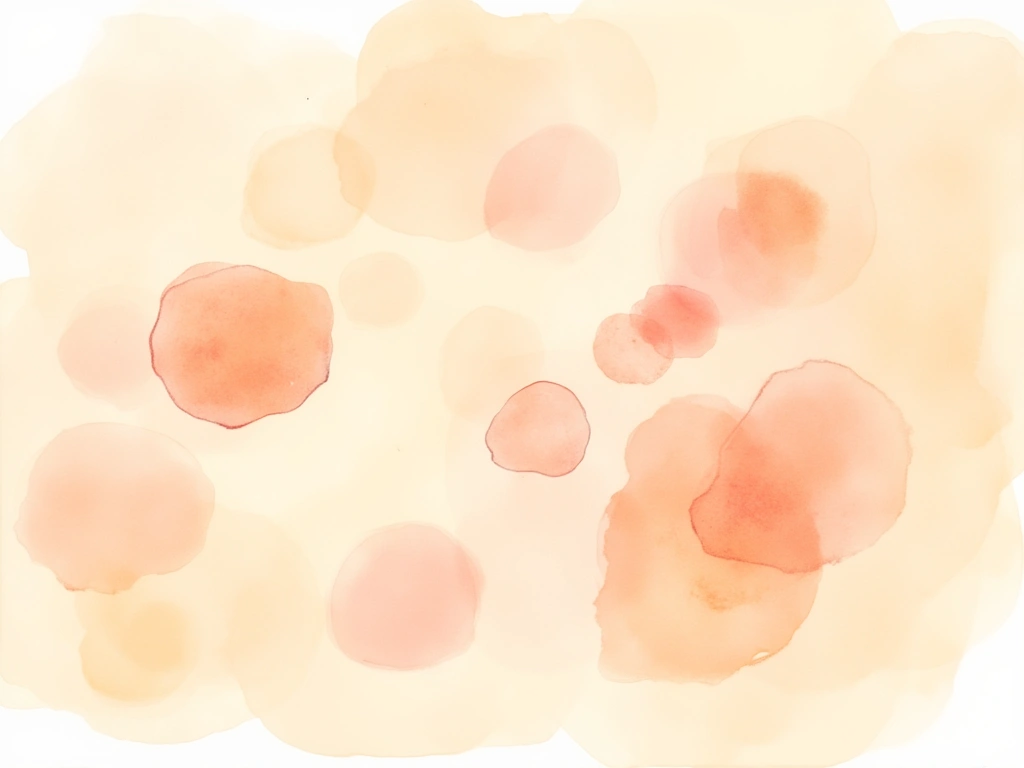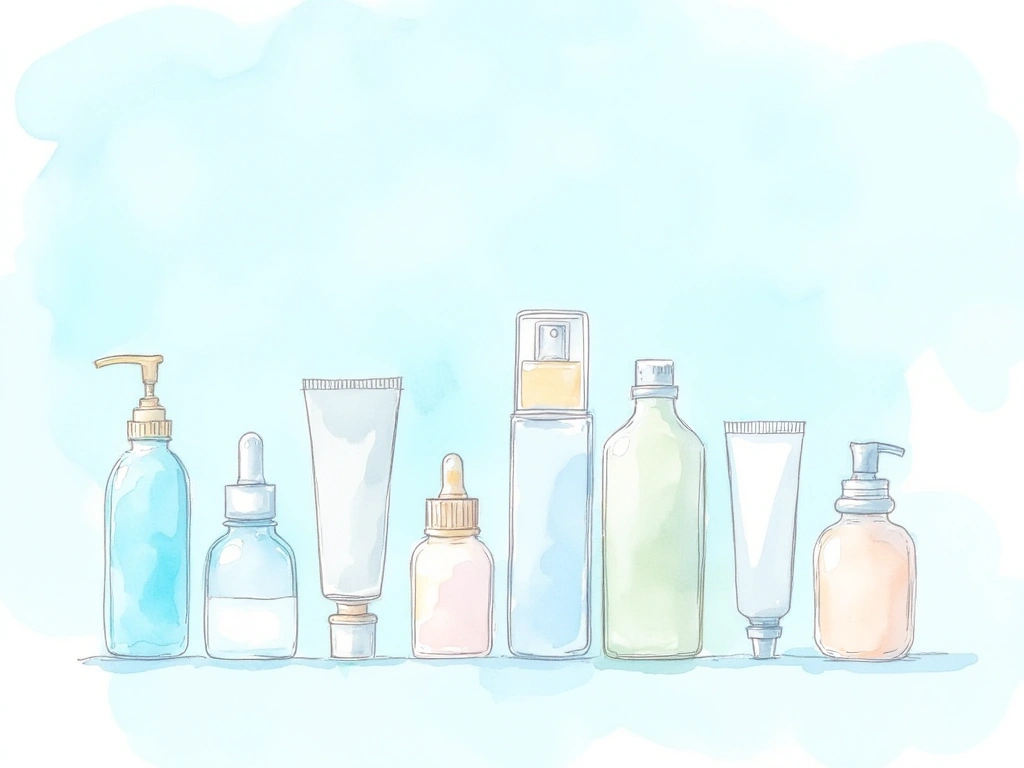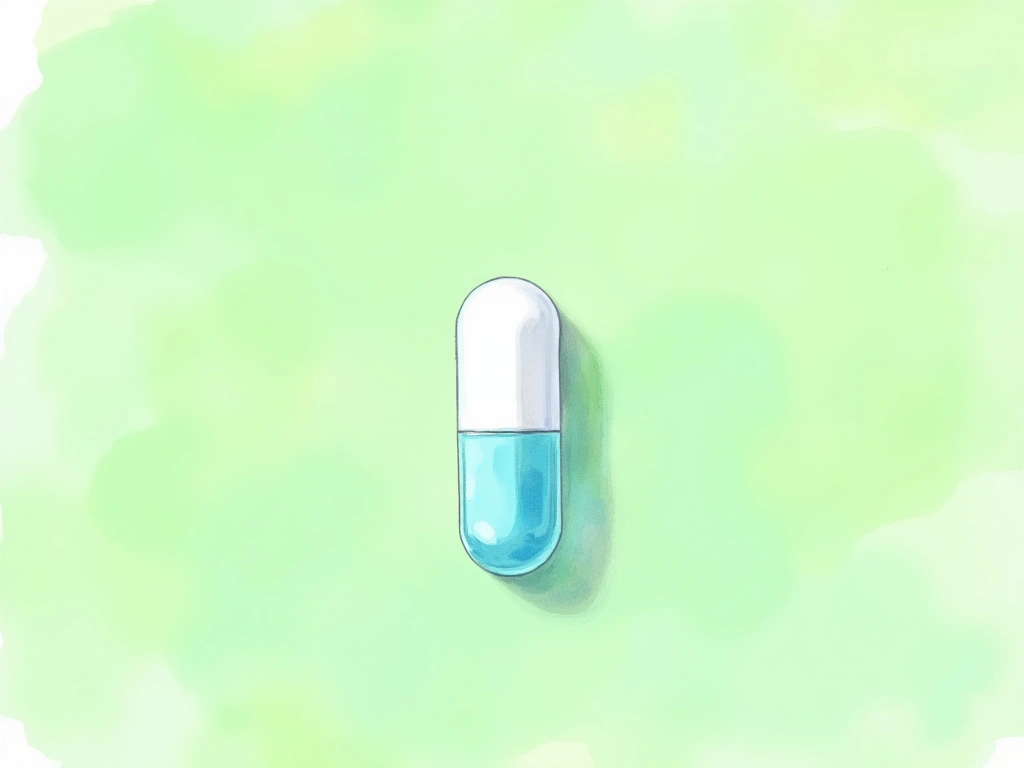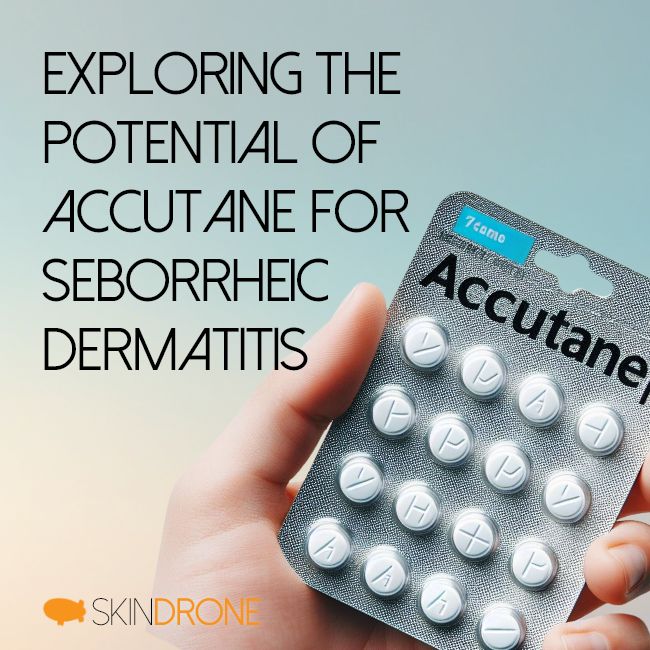- Seborrheic dermatitis is a chronic skin condition causing discomfort and self-consciousness.
- Accutane, traditionally for severe acne, is being explored as a treatment for seborrheic dermatitis.
- Research shows mixed results, with some patients experiencing significant improvement.
- Accutane targets sebum production and inflammation, key factors in seborrheic dermatitis.
- Significant side effects necessitate careful consideration and medical supervision.
Seborrheic dermatitis, a persistent inflammatory skin disorder, affects millions, leading to considerable physical discomfort and emotional distress. For those grappling with its relentless symptoms, finding effective management strategies is paramount. While there’s no definitive cure, the focus remains on alleviating symptoms and improving quality of life.
Recently, Accutane (isotretinoin), a powerful medication primarily prescribed for severe acne, has emerged in discussions as a potential treatment avenue for seborrheic dermatitis. This is generating both interest and hope for individuals seeking solutions for stubborn, treatment-resistant cases. Could a drug known for tackling severe acne also hold the key to managing seborrheic dermatitis?
Quick Summary: Accutane, typically used for acne, is investigated as a possible treatment for seborrheic dermatitis. Studies reveal varied patient outcomes, with its action on sebum and inflammation offering promise. However, potential side effects require careful evaluation. Patient stories highlight diverse experiences, emphasizing the need for realistic expectations.

Understanding Seborrheic Dermatitis
Seborrheic dermatitis is characterized by red, flaky, and itchy patches, predominantly appearing on areas rich in oil glands like the scalp, face, and chest. The exact cause is complex, involving a combination of factors such as increased oil gland activity, the presence of Malassezia yeast, and an irregular immune response [1]. Genetic predisposition also seems to increase susceptibility to this condition [1].
Key Aspects of Seborrheic Dermatitis
- Prevalence: Affects 3-5% of the general population [1]
- Symptoms: Greasy scales, itching, and redness (erythema) on the scalp, face, chest, and back [2]
- Associated Factors:
- Conventional Treatments:
- Antifungal shampoos (e.g., ketoconazole)
- Anti-inflammatory creams (topical steroids, calcineurin inhibitors like tacrolimus)
- Tea tree oil, salicylic acid
- Limited evidence for alternative treatments like traditional Chinese medicine or injected steroids

Standard Treatment Approaches for Seborrheic Dermatitis
Traditional management of seborrheic dermatitis typically involves antifungal and anti-inflammatory agents:
- Topical Antifungals: Target Malassezia yeast, with ketoconazole being a frequently used option [5].
- Anti-inflammatory Medications: Mild topical corticosteroids or calcineurin inhibitors are often prescribed to reduce inflammation and relieve itching [5].
- Natural Remedies: Some individuals find relief using natural options like tea tree oil or Quassia amara, but it’s important to be aware that evidence supporting these is mainly from personal accounts [6].

Accutane and Its Potential Role in Seborrheic Dermatitis
Accutane, also known as isotretinoin, is a powerful oral retinoid primarily reserved for severe acne. Its effectiveness stems from its multi-pronged action:
- Reduces the size and activity of sebaceous glands, thus decreasing oil production.
- Limits the build-up of skin cells that can block hair follicles.
- Reduces inflammation.
- Exhibits antibacterial and antifungal properties.
By targeting sebum production, yeast proliferation, and inflammation, Accutane directly addresses key factors believed to contribute to seborrheic dermatitis flare-ups.
Key Facts About Accutane (Isotretinoin)
- A potent medication developed over 30 years ago for severe, scarring acne.
- Reduces skin oil production from sebaceous glands.
- Also used for other skin disorders involving keratinization, such as ichthyosis and Darier’s disease.
- Potential Side Effects: Accutane carries a range of potential side effects, including:
- Severe skin dryness, hair thinning, and increased sensitivity to sunlight.
- Headaches, muscle and joint pain.
- Possible liver inflammation and bowel issues.
- Mood changes and increased risk of depression.
- Vision disturbances and increased pressure within the eye.
- Significant birth defects if taken during pregnancy.
Given these significant safety considerations, why is Accutane being considered for seborrheic dermatitis? Let’s examine the research and patient experiences.

Investigating Accutane for Seborrheic Dermatitis: Research Findings
While some data points to potential risks, other studies suggest benefits of Accutane for seborrheic dermatitis:
- Case Report: Accutane-Induced Seborrheic Dermatitis: A 2021 case report described a woman who developed seborrheic dermatitis-like symptoms after Accutane treatment for acne. The rash improved upon stopping the medication [7]. This highlights a potential adverse reaction in some individuals.
-
Indian Clinical Trial (Low-Dose Isotretinoin): A study involving 22 patients with severe seborrheic dermatitis used low-dose oral isotretinoin (10-20 mg/day) for 6 weeks. Results showed 61% achieved significant improvement, and 90% experienced moderate to marked reduction in disease severity. This suggests low-dose Accutane could be an effective systemic treatment option [8].
-
Comparative Study (Accutane vs. Antifungal): Another small Indian study compared low-dose Accutane (20 mg/day) to an antifungal pill (itraconazole 200 mg/day) over 6 weeks in 18 patients. The Accutane group showed a 72% improvement rate, compared to 56% in the itraconazole group, indicating potentially superior efficacy [9].
-
Russian Trial (Natural Supplement): In a trial from Russia, 20 patients with seborrheic dermatitis used a natural supplement called Natubiotin for 4-6 weeks. All patients experienced improvement on the scalp and face with notable reductions in disease severity [10]. (It’s important to note this study investigates a natural supplement, not Accutane, and is included here for broader context on seborrheic dermatitis research.)
It is crucial to remember that these are small-scale studies, and more extensive research is necessary to draw definitive conclusions.

Patient Experiences: Anecdotal Insights from Online Communities
Analyzing user posts on platforms like Reddit provides a glimpse into real-world experiences with Accutane for seborrheic dermatitis:
- Significant Improvement Reported: Several individuals reported substantial improvement or complete resolution of seborrheic dermatitis after Accutane treatment, sometimes eliminating the need for topical medications [source], [source].
-
Initial Flare-Ups: Some users experienced temporary worsening of seborrheic dermatitis at the start of Accutane treatment, which later subsided [source]. This aligns with clinical observations of potential short-term skin aggravation.
-
Limited or Temporary Effects: Conversely, some patients found Accutane ineffective or experienced only short-term symptom relief, with seborrheic dermatitis returning after treatment ended [source], [source].
-
Importance of Ongoing Management: Users highlighted the need to continue using antifungal shampoos and moisturizers while on Accutane to manage dryness and prevent fungal overgrowth on dead skin cells [source], [source], [source].
These personal accounts indicate a varied response to Accutane for seborrheic dermatitis, with some experiencing significant benefits and others seeing limited or no long-term change.

Final Thoughts: Accutane as a Potential Option for Seborrheic Dermatitis
Preliminary research suggests that oral isotretinoin might be a promising option for managing severe, treatment-resistant seborrheic dermatitis. Its effectiveness is likely linked to its ability to reduce sebum production and decrease inflammation.
However, the potential for side effects, such as severe dryness, hair loss, headaches, and liver issues, necessitates careful consideration. More extensive research, particularly larger-scale clinical trials, is needed to solidify these findings and fully understand the risks and benefits.
For patients with severe seborrheic dermatitis who have not found relief with standard treatments, discussing isotretinoin with a dermatologist may be warranted. This decision should involve a thorough evaluation of potential risks and benefits. Maintaining skin hydration is crucial to mitigate Accutane’s drying effects.
While some individuals report excellent control of chronic seborrheic dermatitis with Accutane, overall outcomes appear to be mixed based on current evidence. For those struggling with persistent seborrheic dermatitis, a trial of Accutane under close medical supervision might be considered, but it’s important to have realistic expectations and be aware that symptom recurrence is possible after stopping treatment, as is common with many seborrheic dermatitis therapies.

No Comments
Be the first to start a conversation